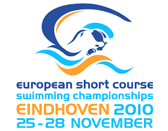
Life in textile
FRANCE
Back into the swing of things
Since autumn, most French swimmers have been preparing for the change in the suit regulations ? on the whole, with enthusiasm.
At the age of 28, Frédérick Bousquet experienced the most beautiful season of his career in the year when 100% polyurethane swimsuits appeared: a technological revolution which he took advantage of, thus becoming the fastest man in the world over 50m freestyle in a long-course pool (20.94 at the French Championships in April before his training partner, Cesar Cielo covered the distance in 20.91 at the Brazilian Championships in December). Bousquet was also the French swimmer who won the most medals at the World Championships in Rome (second place on 50m, third place on 100m and in the 4x100m relay).
No wonder he was not pleased to return to the use of fabric. As the French Federation chose to anticipate the FINA decision, forbidding the use of full-body swimsuits in all competitions organized in national waters from September, it was in a jammer that Bousquet and the majority of other French swimmers competed at the opening event of the current season. At the Saint Dizier meet in November, the sprinter from Marseille voiced his distress in the following way: "This is a different world. When I show up for my heat wearing a speedo, half-naked behind the starting block, I am embarrassed. With my butt in the air in the ?to your marks? position... It is really disconcerting. I don?t feel like being at a competition at all. Before, the procedure of putting on the full-body swimsuit allowed me to close myself up in my bubble. Now I have lost all my points of reference. Our entire environment has changed."
In general, all swimmers have been confused by the change. "With the full swimsuit, it was enough to push the wall at the turns in order to keep an optimal speed," explained backstroke swimmer Pierre Roger. "Now I feel like I?m stopping. I have to force myself to undulate my body." However, some are delighted about it. "The talent of the swimmers will be highlighted again," rejoiced Diane Bui-Duyet. Similarly to Bousquet, the butterfly swimmer also reached the summit thanks to the new swimsuits. But she knows that her water qualities, especially her undulations, should allow her to continue to perform well. Every swimmer will have to take fatigue into consideration, especially in the long-course pool. Bousquet pointed that out when first emerging from the 50m pool without the full swimsuit at the Eindhoven competition at the end of November: "As the distance accumulated, my leg muscles started to grow sore," he explained after having swum 49??90 in the 100m free final.
Alain Bernard had the same impression on his way home over 100m at the Luxembourg meet at the end of January (49.58 on 100m): "In fact, it was a bit less tiring than I had thought, but I knew that the last 15 metres would be more difficult without the full-body swimsuit."
Coaches have adapted their strategies accordingly. Denis Auguin, coach to Alain Bernard and Boris Steimetz, used the decision of the French federation to switch his swimmers to 2010 suits straight away. Full swimsuits were still authorized at the World Cup and the Short-Course European Championships, so the coach decided to skip those competitions. "It is a strategic choice, it is time gained," Auguin said in justification of his stance. The coach added that he did not want to disturb his athletes, psychologically, by sending them "to be slapped in the face at an international competition".
However, that was exactly the risk taken by Romain Barnier, coach of the relay swimmers Fabien Gilot, William Meynard and Grégory Mallet. Just like Auguin, Barnier obliged his swimmers to wear textile jammers, but they did race at the World Cup ? and were unable to qualify for the finals.
Amaury Leveaux belongs to those swimmers who used polyurethane swimsuits until the last moment. At the Short Course European Championships in Istanbul, he wanted to beat his own 100m world record in this way. Now it is time to turn the page, definitively. That said, his coach Frédéric Vergnoux is not going to throw these swimsuits in the trash. "It will turn into the number one training tool," explains the coach. "It will outdo boards and paddles...," said Vergnoux, before going on to elaborate on the benefits of overspeed work. According to Vergnoux, "it will allow us to link quality: Amaury can link twelve 50m between 20.1 and 21.2!".
For his part, Denis Auguin is happy to return to "real swimming", either, as he calls it. "The full-body swimsuits had the fault of concealing certain technical shortcomings and allowed certain swimmers to express only their potential of strength thanks to artificially maintained positions in the water," declares the coach of the 100m free Olympic champion. Nevertheless, he believes that he will " make no major changes in training. We will come back to things that are more difficult to do both technically and psychologically. We have to seize this occasion to double our efforts and intelligence at the training."
One last point not to be overlooked: psychological adaptation. Alain Bernard suspected it at the moment of plunging into the water again: "It will take a lot of concentration and investment for a result that will probably seem less in the eyes of the people." Hence more work for the coaches...
by Jean-Baptiste Renet
L?Equipe, France
* * *
GERMANY
Biedermann on a diet, back to the textile age
Britta Steffen is looking forward to competing with equal resources, Paul Biedermann has gone on a diet, and Helge Meeuw always found the "plastic skin" abhorrent anyway. In general Germany?s leading swimmers assess the return to textile as positive and point to the return of equal opportunities.
And yet, double World Champion Biedermann, in particular, now has to prove that he is still world class in swimming trunks. "For a start I have to lose around five kilos. There was no problem [with weight] in the suits due to buoyancy," says Biedermann.
The 23-year old from Halle/Saale, who swam to gold in world record times over 200 and 400m freestyle at last year?s World Championships in Rome, embarrassing Olympic champion Michael Phelps and highlighting the suits debacle in the process, is looking forward to further duels with the US superstar. "I hope we will soon be competing with one another again," says Biedermann, who also feels well-prepared in traditional swimming trunks.
Biedermann views the decision of the World Federation FINA to retain records set in high-tech suits with mixed feelings. "On the one hand I?m delighted to hold onto my own world records, of course. On the other hand, at some stage, there could be a lack of motivation for all athletes if the leading marks are inaccessible," says Germany?s Sportsman of the Year 2009, adding: "We?ll see how far away from the records we really are. Only now will we get an insight into how productive the suits really were."
In the meantime, Biedermann has donated his ?wonder suit? to a good cause. His main sponsor, Deutsche Vermögensberatung (?German financial advisors?), bought Biedermann?s skintight whole-body suit for 10,000 euro. The amount is to benefit the aid organization "A Heart for Children".
In any case, double Olympic Champion and World Champion Britta Steffen found the discussions about the high-tech suits rather unsavory. "It is fine when the questions are not about the material, but the spotlight is more on human performance. I much prefer it when everyone takes to the start-line under the same conditions," says the 26-year old Berliner, echoing her long-held belief.
But now Steffen must forego at least one advantage. "In my suit I felt a bit like Halle Berry in Catwoman. The suit gave me a lovely bum," Steffen declared with a wink when breaking the world record at last year?s German Championships.
World Champion silver medallist Helge Meeuw has always been a fervent advocate of the return to conventional swimming trunks. His protest action against the ?arms race?, in combination with ex-world record holder Thomas Rupprath, at the European Short Course Championships in Rijeka in 2008, when they both arrived at the start line for the 50m backstroke final wearing swimming trunks, and possibly gave up the chance to win medals, stands out as one of the memorable events in the shiny suits era. The debate on suits always got on Meeuw?s nerves.
One of the first German swimmers to make use of the reintroduced textile suits was World Championship silver medalist Daniela Samulski. The woman from Essen tested her supplier?s equipment in a side pool at the German Short Course Championships at the end of 2009 and was immediately enthusiastic: "The swimming costume feels so light, which is a good feeling."
On one issue, Germany?s leading swimmers are all relieved ? the tortuous process of squeezing into a suit for up to 45 minutes before the start of races is no longer required and is consigned to history.
By contrast, national head coach Dirk Lange views the return to textile almost fatalistically. "We have always operated within the specified rules and regulations and will continue to do so," says Lange, who welcomes FINA?s decision to retain the records, adding: "In general I think it is right to leave the records standing. They were set under uniform criteria and there are no second-class records."
Unlike Biedermann, Lange believes that world records from the high-tech era will also be broken in textile sooner or later: "My view is like that of Michael Phelps. Records are there to be broken and this is going to happen again sometime."
by Holger Luhmann
LEN Press Commission Member, Germany
* * *
ITALY
No difficulties, great expectations
Now is the time for change: rubber swimsuits are out, textile swimsuits are in. Since January the Azzurris have also started to think of the new season, riddled, perhaps, with doubts as to what will be the impact of the exclusive return to textile? In general, the Italian national squad will not be paralyzed by the new rules of FINA, as they are not a team of swimmers with a large mass of muscle and traditional weaknesses in starting and turning.
It is also quite clear that swimmers of the calibre of Massimiliano Rosolino and Emiliano Brembilla will be able to adapt to the old generation materials without difficulty: both have decade-long careers under their belts, for many years they have won medals and improved their performance in all kinds of pools, with all kinds of swimsuits and on all kinds of distances.
However, there are high expectations concerning Federica Pellegrini, the phenomenal azzurro, who had some spectacular victories in Rome, but was dispirited by the death of her mentor, Alberto Castagnetti. ?I do not believe that the return to textile swimsuits will cause any particular problem for me,? states Pellegrini confidently." I have already proven that I am competitive without a shark swimsuit, and now I am even stronger. My aim is to come close to my world records.?
Her coach, Stefano Morini, confirms this analysis. He is convinced that Pellegrini will not have adaptation problems: ?She will not experience any special difficulties, and she focuses on preserving the difference between her and her opponents: the others will have to follow her.?
Filippo Magnini does not conceal his enthusiasm: ?For months I have expressed my satisfaction about the prohibition of the new generation swimsuits, I could hardly wait until 1 January."
"Following the disappointment caused by the world championship held in my country," adds the two-time 100m free world champion, "... I managed to recharge my batteries, to return to the water with the new season in mind, I feel my motivation is back, I have not trained so well and intensively for a long time, I feel that this year I will get back to the top.?
Magnini, who can thank his victories to his ability of swimming faster than anyone else on the second length, now claims that the dynamic of the contests will also change: ?Now it will be more difficult to negotiate a rapid turn, many freestyle swimmers will fall behind on the second length, and once again your capabilities in the finish will be of utmost importance.?
You can also see a smiling coach Claudio Rossetto once again: ?I am really happy to see a renewed Magnini between the ropes, I cannot remember if I have ever seen him so brilliant and determined. I think training is easier now, you no longer have to adapt to the suit. The opponents? Filippo will be competitive, but the others will not back down either, and they will probably figure out a way to remedy the lack of the shark swimsuit, which in my opinion will hit Bousquet of France the hardest.?
Alessia Filippi also seems satisfied, she is one of the most elegant female swimmers and is not scared by the ban on polyurethane: ?At last, I do not have to spend half an hour dressing before the contest, no more quality work in a shark swimsuit in the training, I can focus on the contest only, and there are no more worries that during waiting something might happen to our suits. As to performance," the world champion over 1,500 m freestyle continues, "I do not believe the return of textile suits will put me at a disadvantage ... on the contrary, I am really happy about it, because I believe that way it will be much easier for me to implement my capabilities of moving with ease. Naturally, at this point we do not have enough data to formulate a judgment, considering the fact I have not yet competed, but it is certain that now nobody can hide behind the swimsuit, and thus the more talented swimmers and those with belonging skills will put a nice, wide gap between themselves and their rivals.?
Her coach, Cesare Butini provides a summary of the opponents: ?Those that reached a high level in the rubber suit will be able to adapt, but the changes will hit hard a few athletes this year: consider Lotte Friis, for example, who has a very developed musculature, she will have to be redimensioned, but she will remain competitive anyhow, because she has an optimal swimming technique.?
Federico Colbertaldo, who had some difficulties when the rubber bodies were introduced, difficulties that he overcame quickly, sighs in relief, but he pulls himself together: ?At this point I would find it hard to assess the expected impacts of the ban on the new [defunct] generation swimsuits: I am still in weak form, so it would be difficult for me to evaluate the first experiences, but one thing is certain, it will be important to realize that the return of the textile swimsuits will more or less put certain athletes at a disadvantage."
The European 800 m freestyle record holder looks forward to the new season with confidence but is still wary of his opponents that pushed him off the platform in the world championship in Rome: ?I am convinced that the rubber suit was a significant advantage for some swimmers who are faster than me, because their physical features are considerably different than mine, but I am also sure that now they will be able to adapt and remain in the arena, and even though they will not come close to their best times, they will still be near the top of the list.?
If there is someone who has yet to demonstrate his talents after recent failures, it is Luca Marin. Fascinated and motivated by girlfriend Pellegrini, the medley man makes no excuses and does not conceal his ambitions concerning the upcoming European Championship: ?I am glad to see the return to the textile swimsuit: my best accomplishments date back to the time before the shark swimsuit, and this return makes me confident about the contests of this year.?
The death of technical director Alberto Castagnetti upset him, too, but the bronze medallist of Melbourne on 400 m medley has not changed his training methods radically under the new national team regime and looks forward to racing later on in 2010.
?I took a long break,? adds Marin ?and only started to train seriously in January, and I have not reached a point where I could assess my strength condition and potential. In April I would like to be in form, when I will have to qualify for the European Championships, so afterwards I would only have to focus on Budapest, where I want to fight László Cseh (HUN)."
On medley the Sicilian considers the Hungarian swimmer and Michael Phelps as ?untouchables?, hust as he believes that the results of several "second-class" swimmers accomplished in rubber suits will be placed in context by the return to the textile suit.
by Alberto Fumi
La Gazzetta dello Sport, Italy











